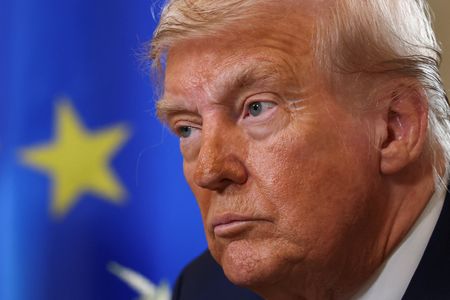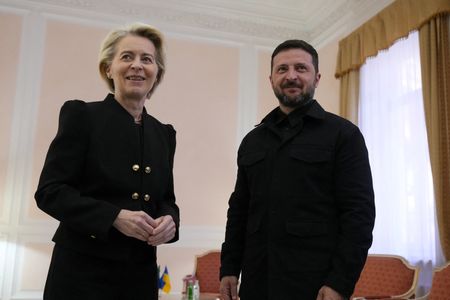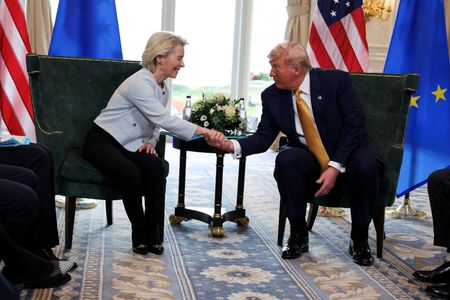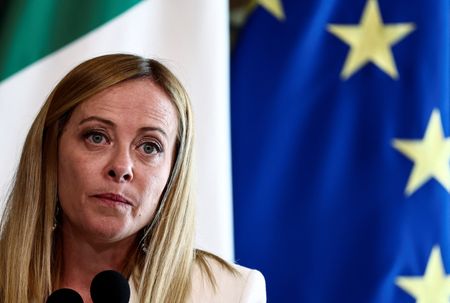BRUSSELS (Reuters) -The U.S. and the European Union agreed on a framework trade deal on Sunday, ending months of uncertainty for industry and consumers on both sides of the Atlantic.
Here are the main elements of the deal:
* Almost all EU goods entering the U.S. will be subject to a 15% baseline tariff, including cars, which now face 27.5%, as well as semiconductors and pharmaceuticals. The 15% tariff is the maximum tariff and is not added to any existing rates.
* However, the U.S. is to announce the result of its 232 trade investigations in two weeks and decide separately on tariff rates for chips and pharmaceuticals. Whatever U.S. decisions come later on these sectors will be “on a different sheet of paper”, European Commission President Ursula von der Leyen said.
* The U.S. and EU will have zero-for-zero tariffs on all aircraft and their components, certain chemicals, certain generic drugs, semiconductor equipment, some agricultural products, natural resources and critical raw materials. More products would be added. The situation for spirits is still to be established.
* Tariffs on European steel and aluminium will stay at 50%, but von der Leyen said these would later be cut and replaced by a quota system.
* The EU pledged to buy $250 billion of U.S. liquefied natural gas (LNG) a year for three years, totalling $750 billion in total, as it replaces Russian gas. The EU will also buy nuclear fuel from the U.S.
* Under the deal, the EU pledged to buy U.S. military equipment and European companies are to invest $600 billion in the U.S. over the course of Trump’s second term.
(Reporting by Jan Strupczewski; editing by Philip Blenkinsop and Marguerita Choy)










